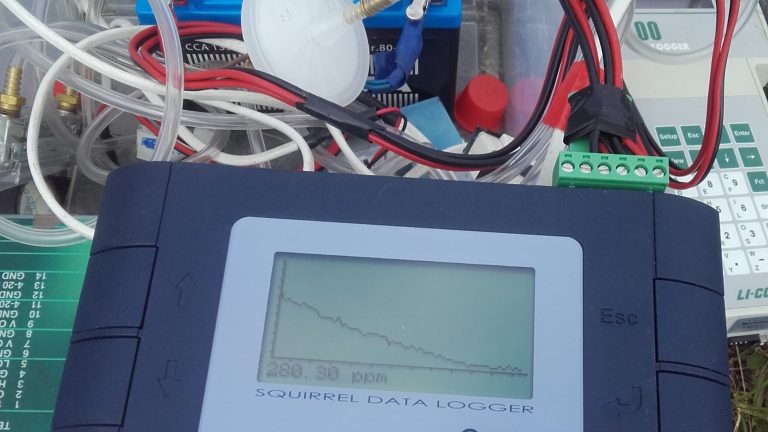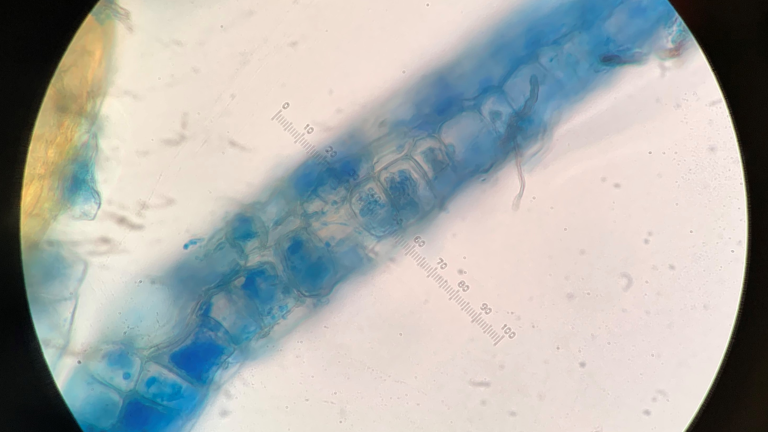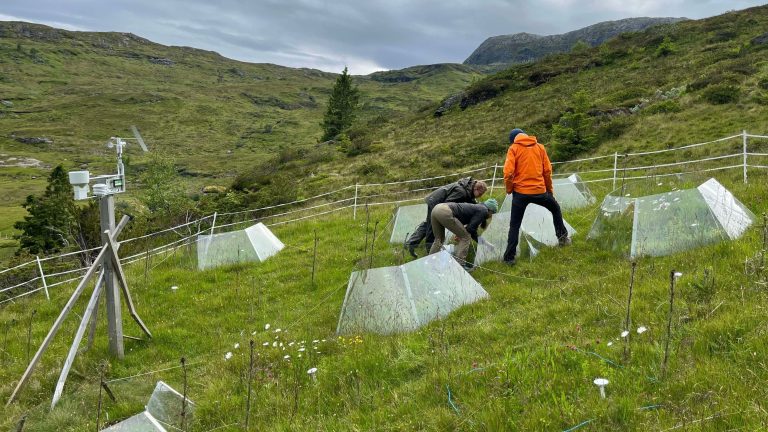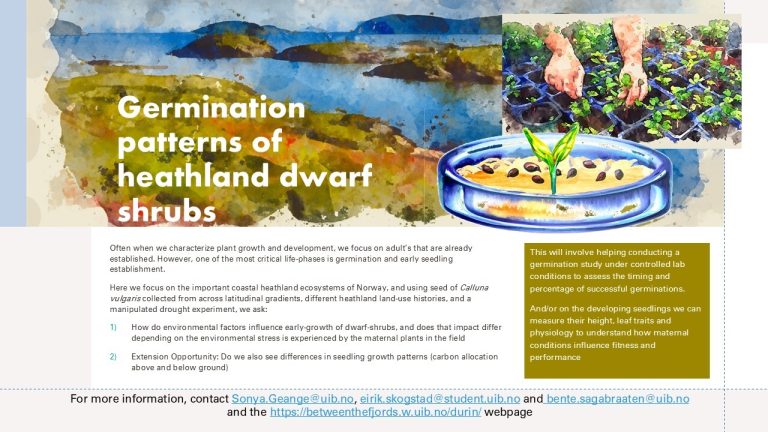By Vendula Špačková, Applied Ecology student, CZU Prague I am a Bachelor student of Applied Ecology at the Czech University of Life Sciences in Prague. As part of my studies, I wanted to complete an internship abroad and actively searched for opportunities that would combine ecology, fieldwork, and international experience. After applying and successfully passing READ MORE
Author: Dagmar
Fieldwork for the DURIN project – from north to south, east to west
By Mika Kirkhus In September 2025 Jeanne, Sonya, Léo, Vendy, Kristine, Elias, Inge, and Mika of the Between the Fjords research group carried out one of its final field campaigns for the DURIN project. DURIN aims to understand how dwarf shrubs in boreal, alpine, and arctic ecosystems respond to a changing climate. To study this, READ MORE
Vigdis Vandvik to be Coordinating Lead Author on next IPCC report
After her role as coordinating lead author for the IPBES Invasive Alien Species Assessment, Vigdis Vandvik will now contribute to the upcoming seventh IPCC report and be co-responsible for a chapter on how climate change affects biodiversity, ecosystems and ecosystem services on land and in freshwater. The Coordinating Lead Authorship will be shared with Denis J. READ MORE
10 years of data collection: a reproducibility case study
Since 2015, the Plant Functional Traits Courses have collected ecosystem gas fluxes data in China, Peru, Svalbard, western Norway and South Africa. But since 2015, the method to process such data has also evolved a lot, and we have now developed the fluxible R package to make it reproducible and faster. There is now an READ MORE
MSc thesis: The role of belowground fungi in the carbon cycle
Background Belowground fungi are key players in the decomposition of plant litter, and therefore in regulating the carbon cycle. Despite their importance, we still know relatively little about how these fungi respond to climate change, and how such responses, in turn, influence decomposition rates across Norway. Using cutting-edge molecular approaches, such as metabarcoding, we can READ MORE
What do people really know about nature, and the biodiversity crisis?
To solve the biodiversity crisis, we need to stop the spread of alien species, stop sacrificing nature to build stuff, and protect areas and species that need protection. But to do so, people need to understand, know, and value nature and biodiversity. In this project we will try to figure out what people know about READ MORE
In-depth study of microclimate manipulations in a global warming ecology experiment
In this project you get to work with climate data from microclimate loggers, and local climate stations. We use these data to fully disentangle the effect of mini-greenhouses, called Open-Top Chambers (OTCs) that are being used in climate change experiments in alpine and arctic ecosystems worldwide to investigate the effect of climate warming on vegetation. READ MORE
Field season 2025: it’s (almost) a wrap!
Whilst most of Norway calms down when the summer approaches; in our discipline of field ecology the months of June, July and August are the highlight of the action. This summer has seen yet again a great amount of project planning, data collection, identifying sedges without flowers, cooking leaves, and hiking across Bergen municipality. For project READ MORE
Fieldwork blog: My trip around Norway
Picture from front left to right: Kristine Birkeli, Viljar Storvik, Vendula Spackova, Elias Skaslien Hi! I’m Elias Eide Skaslien, and I am a master’s student in Between the Fjords. For my master’s project I have been travelling with Kristine Birkeli and Durin around Norway to investigate diurnal fluxes in different macro- and microclimates in Norwegian READ MORE
Germination patterns of heathland dwarf shrubs (Durin)
Often when we characterize plant growth and development, we focus on adult’s that are already established. However, one of the most critical life-phases is germination and early seedling establishment. Here we focus on the important coastal heathland ecosystems of Norway, and using seed of Calluna vulgaris collected from across latitudinal gradients, different heathland land-use histories, READ MORE






